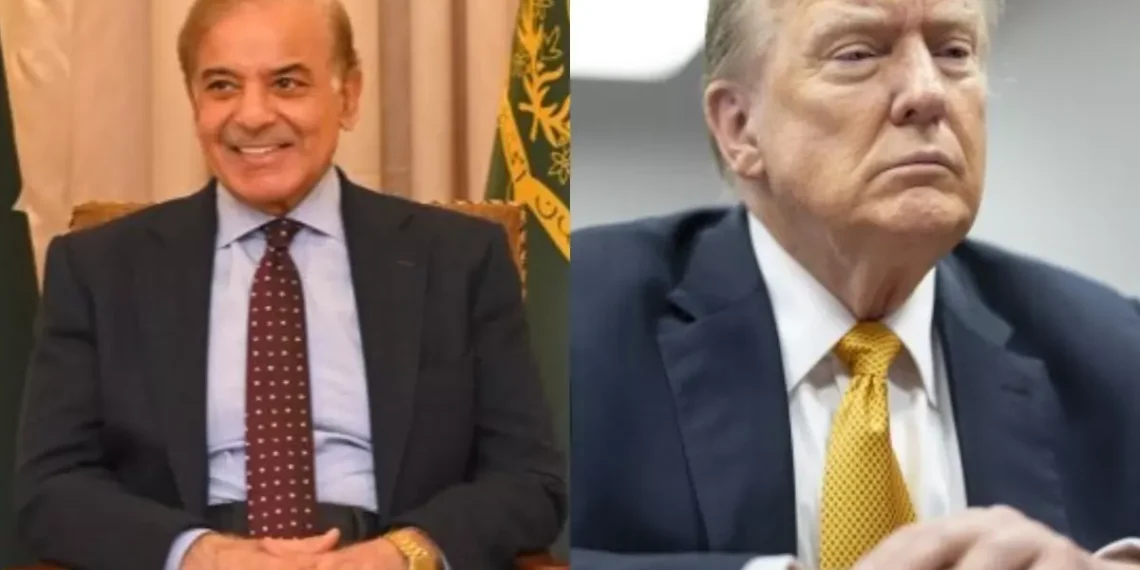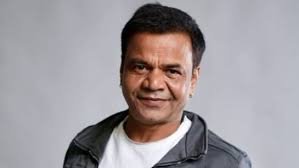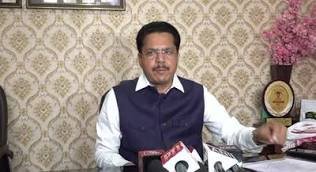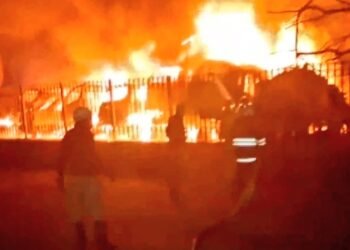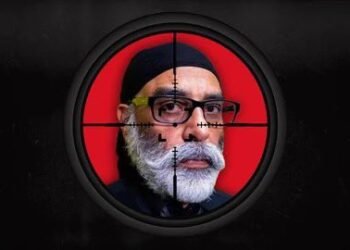As fears of conflict rise, Pakistan urges U.S. mediation—its ambassador warns of Kashmir as a “nuclear flashpoint” and asks Trump to step in as a global peacemaker.
BY PC Bureau
Amid escalating tensions with India after a deadly attack in occupied Kashmir, Pakistan has launched a two-pronged diplomatic appeal to the United States—its Ambassador to Washington, Rizwan Saeed Sheikh, has reached out to former President Donald Trump, urging him to intervene as a global peacemaker in the Kashmir crisis, while Prime Minister Shehbaz Sharif has called on US Secretary of State Marco Rubio to press India to “dial down the rhetoric and act responsibly.” The dual outreach reflects Islamabad’s bid to leverage American influence in defusing hostilities and seeking a long-term resolution to the Kashmir dispute.
According to Newsweek, Ambassador Sheikh described Kashmir as the “flashiest flashpoint” in global geopolitics, especially considering the nuclear capabilities of both nations. “If we have a president who is standing for peace in the world as a pronounced objective… I don’t think there is any higher or flashier flashpoint, particularly in nuclear terms, as Kashmir,” he said, urging the US administration to adopt a sustained diplomatic initiative rather than a one-off de-escalatory measure.
ALSO READ: Despite US Pressure, India Stands Firm on Military Response to Pahalgam Attack
The April 22 attack in Pahalgam, Kashmir, which killed 26 people—mostly tourists—has reignited tensions, with India hinting at Pakistani involvement despite lacking public evidence. Pakistan has firmly denied the allegations and called for an impartial international investigation, warning against unjustified provocations. As Pakistan braces for a potential Indian incursion within 24–36 hours, Islamabad has activated diplomatic channels to avert further escalation.
In addition to the ambassador’s appeal, Prime Minister Shehbaz Sharif also directly urged US Secretary of State Marco Rubio to press India to “dial down the rhetoric and act responsibly.” A State Department readout confirmed that Secretary Rubio encouraged both countries to maintain peace and re-establish direct communication. He also pressed Pakistan to cooperate in investigating the Pahalgam incident and holding the perpetrators accountable.
Ambassador Sheikh further stressed that resolving the Kashmir dispute was key to regional stability. “Until and unless that final settlement is made… we will all keep having these problems,” he said, reiterating Pakistan’s long-standing position that international mediation is essential.
Rejecting Indian accuPakistan Turns to Trump and Rubio to Defuse War Cloudssations, Sheikh argued that the attack harmed Pakistan’s interests and suggested it could be a false flag operation. While acknowledging he lacked direct evidence, he cited circumstantial context and history to justify the suspicion. He also rejected any association with terror activities, stating, “It’s so outlandish, so far-fetched, to blame Pakistan.”
Highlighting Pakistan’s foreign policy shift from geopolitics to geoeconomics, the ambassador said Islamabad was prioritising peace for economic growth. “We are currently economically ascendant… All we need is a peaceful neighbourhood.”
Tensions have been further inflamed by India’s unilateral suspension of the Indus Waters Treaty (IWT). Sheikh warned that any attempt to block or hold Pakistan’s water supply would be treated as a declaration of war. “If you threaten me with this kind of a situation which is existential, what is your expectation of response?” he asked.
Meanwhile, the Indian Embassy in Washington dismissed Pakistan’s statements, calling them a “crude attempt to rewrite history.” It reaffirmed India’s commitment to bringing the perpetrators of the Kashmir attack to justice.
As diplomacy unfolds, military readiness on both sides has escalated. Radio Pakistan released videos showcasing exercises by the Pakistan Army, Air Force, and Navy, signaling preparedness for any hostile move. These included displays of modern weaponry, fighter aircraft like the JF-17 Block III, and statements from military leaders underlining the importance of national defence.
The Pakistan Armed Forces, according to official sources, are maintaining full operational readiness and continue war drills with the objective of delivering a “crushing reply” to any aggression.
In this highly volatile climate, Pakistan’s outreach to the US—urging Washington to use its influence to cool tempers in New Delhi—marks a significant diplomatic push aimed at averting war and pushing for a long-term resolution to the Kashmir issue.



